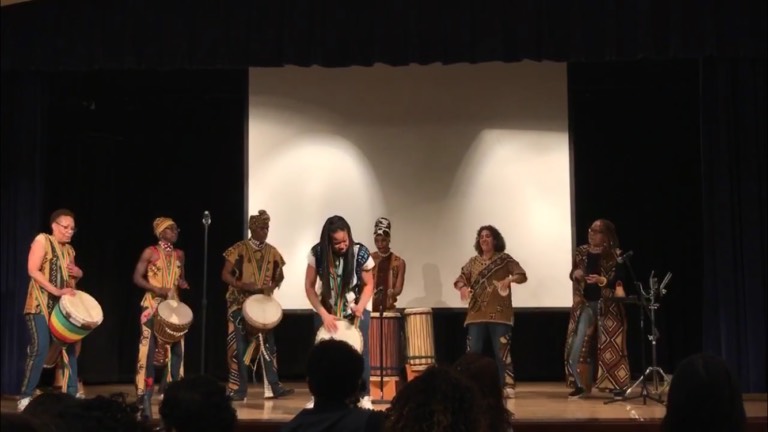By Zakia Elliot
This summer, I traveled to Oakland, California to attend the People of the Global Majority in the Outdoors, Nature, and Environment (PGM ONE) Summit, which brought together hundreds of people of color working in the environmental and outdoor sectors to take a critical look at racial equity and inclusion in the movement. As a person who has had to navigate spaces in which I was one of the few persons of color, and often the only black woman, I’ve become familiar with feelings of isolation. However, during the PGM ONE Summit, I was reminded that the environmental community is Black, Brown, and Native, and that we can create community across cultures and identities, dismantle structural oppression in our communities, and truly live and work by our equity principles — not because it’s the right thing to do, but because we need it for our survival.
The PGM ONE summit reclaims the narrative of diversity, equity and inclusion (DEI) from one that is centered on helping minority people feel included in majority white spaces to one that acknowledges that black/people of color are here and are a force, even when it doesn’t always feel that way.
The fact that any one of us, as people of color, at the summit are deeply connected to nature and to environmental justice was not a surprise or a novelty. Our identities and experiences shape our relationships to the land and environment, and both the individuality and the universality of those experiences were honored. An icebreaker posed during the identity caucus session for African Diaspora (people who belong to the communities of African descendants throughout the world) nearly brought me to tears. “Why are you proud to be a part of the African Diaspora?” is not a question that I’ve often given the space to reflect on, period, let alone with the environmental community. As I was reminded at PGM ONE, simply bringing new and different people into our organization to increase representation doesn’t cut it. We have a responsibility to create spaces that welcomes differences in culture and encourages people to bring their full selves to the work.

Photo caption: The musical group, Sistahs of the Drum, perform a drum circle and singing rendition during the PGM ONE Welcome Dinner.
The struggle for environmental justice and liberation requires constant learning and unlearning, and it requires us to challenge ourselves to listen, to hold each other accountable to our growth with firmness, and to guide each other to understanding through difference. At the PGM ONE summit, I was glad to have the opportunity to unpack my beliefs and reflect on my work, and many of the conversations that shifted my perspective didn’t come to a conclusion in black and white. Among some of those discussions include unpacking the concept of allyship and whether allies are needed for a movement to succeed, how we can be resilient to the ways that gentrification and appropriation can traumatize communities, and imagining a world where women of color can more fully assert and be respected as leaders in the environmental movement.
I learned that sometimes growth means sitting in the discomfort of not having all of the answers, and that it certainly requires us to do so when we learn that we are wrong. We are not perfect, and committing ourselves to the work is just one step to fighting for justice and equity. The rest of the steps require humility, resilience, and persistence.
When I return for the next PGM ONE Summit, I hope to see the attendance double, so that more people of color in the environmental and outdoor movement can feel their own version of the reinvigoration that I did, and so those who are more siloed and isolated can have access to a community to support them in continuing their work in the movement and thriving in their work. I felt grateful to learn that many of the tools and strategies that were shared during the summit are things that Sierra Club PA Chapter, the Equity Team, and my coalition, Philadelphia Climate Works are either doing right now or working toward. I’m excited to continue contributing to that work, and to work together to embody the final line of the Jemez Principles: “We must be the values that we say we’re struggling for and we must be justice, be peace, be community.”
This blog was included as part of the 2019 Spring Sylvanian newsletter. Please click here to check out more articles from this edition!